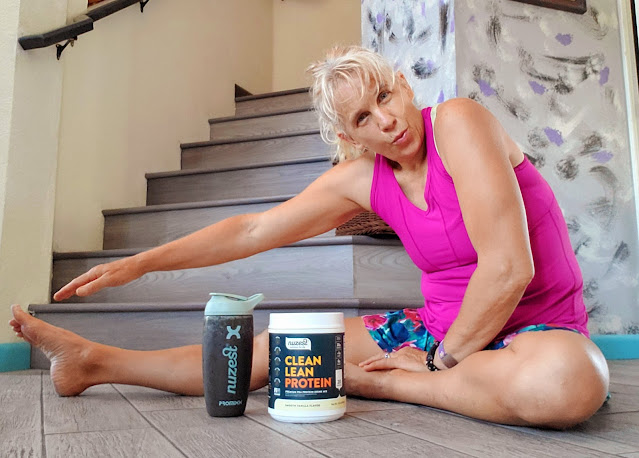Life is a constant process of change. One of the changes that come with advancing age is a decline in flexibility. However, it's possible to maintain and even improve flexibility as one grows older.
Why Flexibility Matters
Flexibility is the ability of the joints to move freely through a full range of motion. As we age, maintaining flexibility becomes more important. It not only enhances athletic performance but also improves daily tasks such as bending, reaching, or twisting. Moreover, good flexibility can help prevent injuries and manage pain associated with aging.
Factors Affecting Flexibility
Several elements influence flexibility. Lack of regular activity, certain medical conditions, and even the passage of time can reduce flexibility. But with consistent, proper exercise, one can counteract these effects.
Why Your Body Needs Extra Minerals During Strength Training ~ https://www.beamminerals.com/blogs/blog/empowering-your-lift-supporting-women-s-strength-training-with-minerals
Use code MOMKNOWSBEST to save 20% on BEAM Minerals
Importance of Regular Activity
Regular activity is an essential factor in preserving flexibility. Sedentary habits can lead to stiffness and loss of range of motion. But the body is adaptable, and it's never too late to start exercising.
Role of Consistent Exercise
Consistent exercise can help maintain and improve flexibility. A routine of regular, full-body stretching can keep joints fluid and muscles limber.
This is where free stretching videos come into play. These resources can be invaluable for learning proper techniques and maintaining motivation.
Managing Medical Conditions
Certain medical conditions like arthritis can decrease flexibility. Consulting with a medical professional can help manage these conditions and maintain or improve flexibility.
Strategies for Maintaining Flexibility
Many strategies can help maintain and improve flexibility as we age. Here are a few.
Incorporate Daily Stretching
The incorporation of a daily stretching routine can do wonders for flexibility. Remember to include stretches for all major muscle groups.
Try Yoga or Pilates
Activities like yoga and Pilates focus on flexibility and can be a great addition to a fitness routine.
Stay Hydrated
Keeping the body hydrated helps maintain the health of the muscles and connective tissues, thereby supporting flexibility.
Eat a Healthy Diet
A diet rich in nutrients can support overall health and well-being, which indirectly can help maintain flexibility.
Importance of Warming Up
A proper warm-up can be a game-changer for maintaining flexibility. By increasing the body's core temperature, a warm-up can prepare the muscles for stretching exercises and help prevent injuries. Incorporating a ten-minute warm-up routine before the main workout can make the exercises more effective.
Progressive Overload Principle
The principle of progressive overload is not just for strength training. It applies to flexibility too. The idea is to gradually increase the duration, frequency, or intensity of flexibility training over time. This gradual increase can help the body adapt to the new levels of stress, thereby improving flexibility.
Recovery and Rest
While it's important to stretch and exercise regularly, it's also essential to let the body rest and recover. Rest days are important for muscle recovery and growth. Allowing adequate rest can lead to improvements in flexibility over time.
Importance of Posture
Maintaining good posture can be beneficial for overall health and flexibility. Good posture can reduce strain and stress on the muscles and joints, making them work more efficiently. A constant effort to maintain good posture, whether sitting, standing, or moving, can complement flexibility training.
Consult a Professional
If one is unsure about how to improve flexibility or has specific health concerns, it's always beneficial to consult with a fitness professional or a physiotherapist. They can provide guidance and personalized plans tailored to individual needs and conditions.
Mindfulness and Flexibility
The connection between the mind and body is profound. Mindfulness practices such as meditation can help increase awareness of the body, which in turn can enhance flexibility. By paying close attention to the body and its movements, one can make adjustments to improve flexibility.
Listening to the Body
Each individual's body is unique, and so is its response to flexibility training. It's essential to listen to the body and pay attention to how it reacts to different exercises. Some discomfort is normal when stretching, but pain is a signal that something might be wrong. Always respect the body's limits and avoid pushing too hard.
The Role of Genetics
It's important to understand that genetics play a role in flexibility. Some people naturally have more flexibility than others. But regardless of genetic predisposition, everyone can improve their flexibility with consistent practice and effort.
Impact of Temperature on Flexibility
Temperature can have an effect on flexibility. Muscles are more flexible when they're warm, which is why warm-up exercises are important before stretching. Stretching in a warm environment can also be beneficial.
The Myth of Age and Flexibility
Finally, it's essential to debunk the myth that age limits flexibility. While it's true that flexibility tends to decrease as we age, it doesn't mean that older adults cannot improve their flexibility. With consistent effort and the right strategies, anyone, at any age, can become more flexible.
Conclusion
Improving flexibility as we age involves a combination of physical exercises and mental practices. It's important to be mindful of the body, listen to its signals, and respect its limits. While factors like genetics and temperature can influence flexibility, remember that it's never too late to start working on flexibility, regardless of age. With consistency, patience, and the right strategies, it's possible to maintain and even improve flexibility as we age. Enjoy the journey to improved flexibility, and remember, every little step counts.


No comments:
Post a Comment